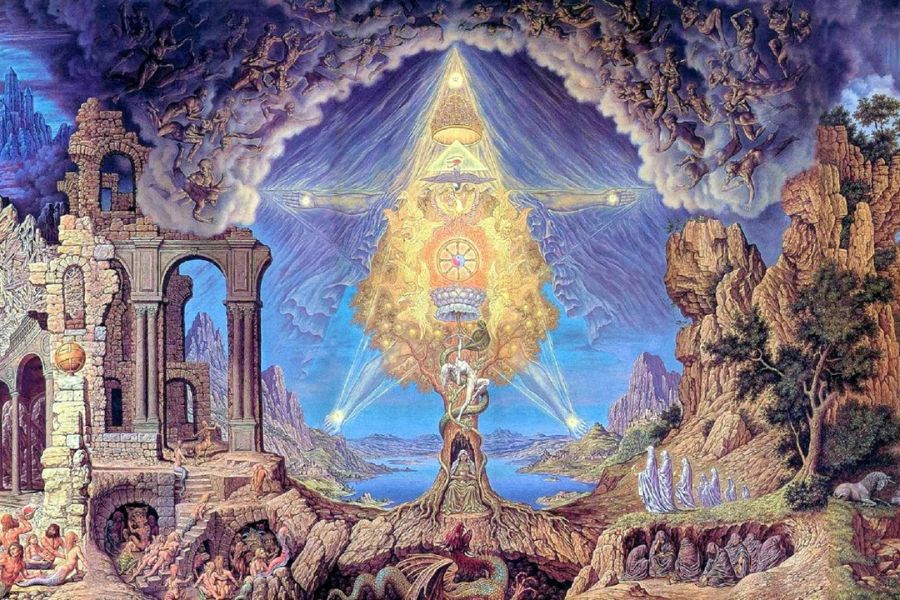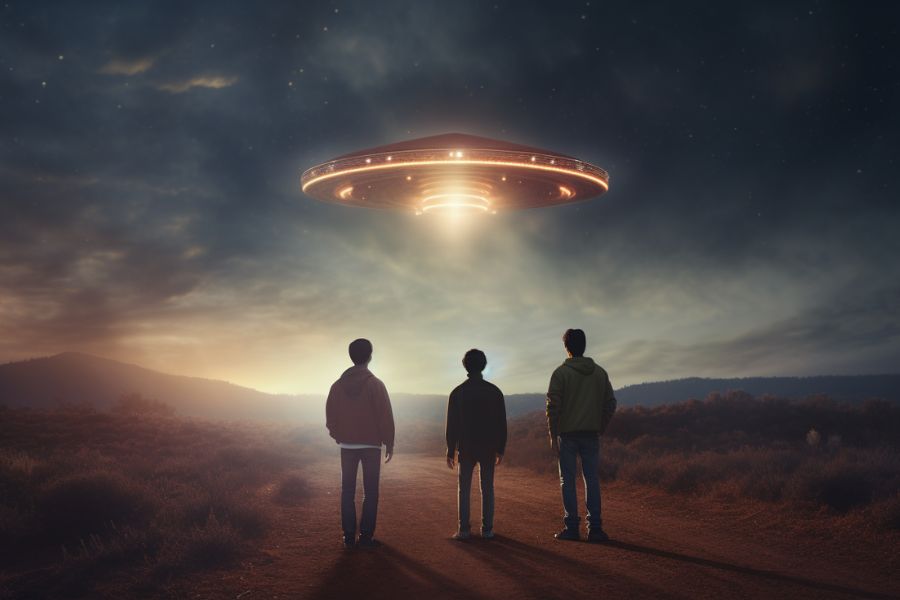Arthur Flowerdew's story, an Englishman from Norfolk, England, is one of those tales that defies logic and makes us reflect on the mysteries of the mind and the possibility of connections to the past.
Arthur's journey begins with a disturbing dream that, over the years, revealed a surprising link to an ancient mystery.
It all began when Arthur, at only twelve years old, woke up startled from a vivid and unsettling dream. In the dream, he found himself in a large city surrounded by a vast desert. What seemed to be just a dream would soon become an enigma that would accompany him throughout his life. Initially disturbing, the dream repeated frequently, becoming clearer and less frightening over time.
In those night visions, Arthur saw a city with streets, civil and military buildings, and even a small temple. But the element that intrigued him the most was a volcanic-shaped rock located on the outskirts of the city and the sense that, somehow, he had been a soldier there long ago.
As Arthur grew, the connection to that dream city seemed to intensify. He could visualize the place with stunning details, as though he had information beyond what he could have learned or imagined. Everything seemed to fall into place in a mysterious way until something extraordinary happened.
Arthur was watching, like many of us, a documentary about the ancient city of Petra in Jordan when he encountered something surprising. The images shown were identical to the city he had seen repeatedly in his dreams. Old streets, time-worn structures, and even the volcanic rock he remembered were there, just as he recalled.
The topography of the place had changed a bit, but the resemblance was undeniable. Arthur's connection to the city seemed more than a mere coincidence. Excited, he shared his story with friends and neighbors, and soon his narrative reached the ears of the British Broadcasting Corporation (BBC).
The BBC, fascinated by Arthur's story, invited him to a television program, where he shared his experience honestly and simply, without seeking fame or recognition. Arthur explained that, since he was twelve years old, he had felt an inexplicable connection to ancient Petra. His statement surprised everyone, leaving a sense of mystery in the air.
The Jordanian authorities, also intrigued, made a bold decision: they took Arthur to Jordan, accompanied by a BBC crew and a renowned archaeologist specializing in Petra. The goal was to verify the authenticity of Arthur's claims and investigate whether he truly had knowledge of the city that no one else knew.
When Arthur arrived at the city of Petra, the story took an even more extraordinary turn. As he approached the city, he pointed to the volcanic rock, exactly where he had predicted. Upon entering the ruins, he showed the local archaeologists impressive details, such as a specific guard room and a unique record system.
The archaeologist, initially skeptical, was astonished by the accuracy and consistency of the information Arthur provided. He recognized that the descriptions were coherent with the archaeological and historical facts, concluding that Arthur could not have invented the details. Arthur Flowerdew's story then became a milestone in the exploration of inexplicable phenomena, challenging conventional explanations about memory, knowledge, and connection to the past.
What Arthur Flowerdew's story makes us question is the true nature of the human experience. Was his connection to Petra just an extraordinary coincidence? Or is there a deeper explanation, such as reincarnation, that could explain this phenomenon?
As we reflect on what is possible and what we still don't understand about the past, Arthur's story opens the door to a range of questions that challenge the limits of our understanding. Could it be that our soul carries memories of past lives, or perhaps there is a more complex connection between humans and ancient places that we cannot see?
After watching the video about Arthur Flowerdew's story, the reflection remains: Do you believe in reincarnation? Do you think this coincidence is truly inexplicable? Or perhaps you've experienced something similar that challenges conventional logic? Is there something deeper, still hidden, in this narrative?
It's impossible not to ponder the limits of what we know about the past and the inexplicable that may be all around us.




















